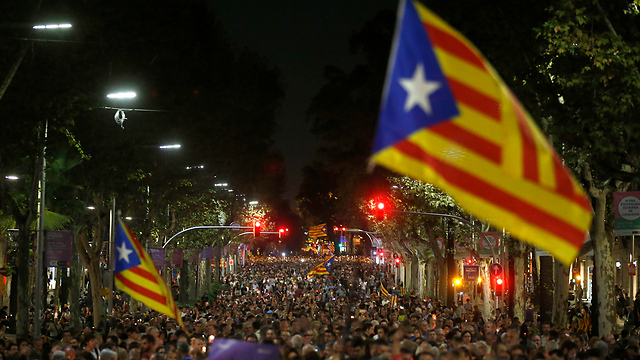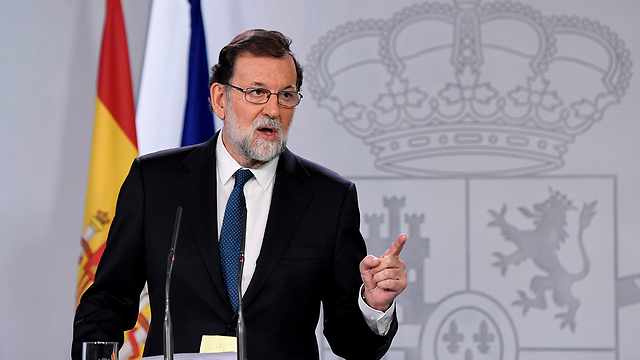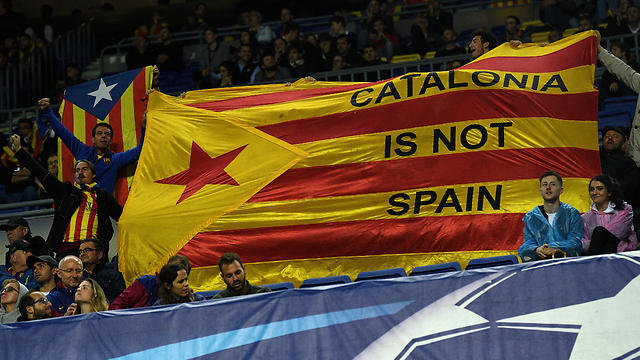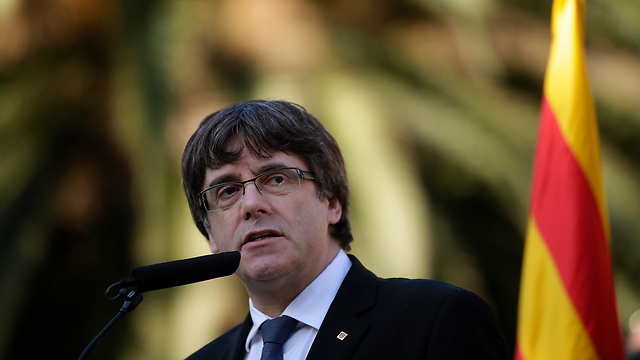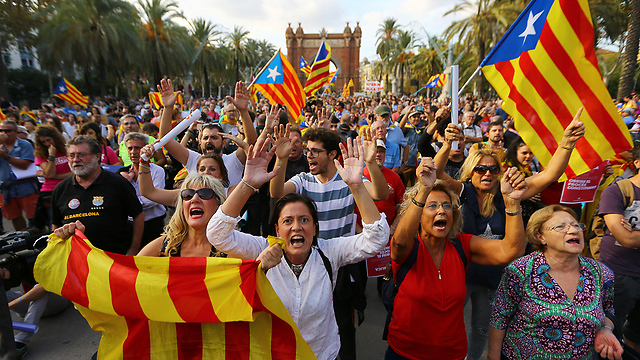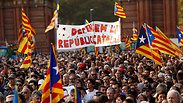

Spain moves to dissolve Catalan government
In an unprecedented step, the Spanish gov't moves Saturday to take control of Catalonia and thwart its push for independence; such a move is expected to anger both independence supporters and moderate Catalans, who will see it as an attack on their autonomy.
Spanish Prime Minister Mariano Rajoy said after meeting with his Cabinet on Saturday that the central government needs to take the unprecedented step of assuming control of Catalonia to "restore order" in the face of a secession effort backed by the regional government.
He is proposing that the powers of Catalan officials be taken over by central government ministers and has asked the Senate to allow central ministers to take over functions from all the regional Cabinet members and give him the power to call regional elections—something that only Catalonia's top leader can do now.
Spain is which facing its most grave institutional crisis in decades with Catalonia's independence movement. Rajoy said a new regional election in Catalonia should be held in the next six months.
"There is no country in the world ready to allow this kind of situation within its borders," Rajoy said Saturday. "It is my wish to call elections as soon as normality is restored."
Rajoy's party enjoys a majority in the Senate and he has the backing of the main opposition parties in the move to quash independence for Catalonia and maintain Spain's territorial integrity.
Article 155 gives central authorities to intervene when one of Spain's 17 autonomous regions fails to comply with the law. It's never been applied since the 1978 Constitution was adopted, but Rajoy's conservative government says establishing direct control over Catalonia was a move of last resort.
The move is expected to spark angry opposition from both independence supporters and moderate Catalans, who will see it as an attack on their autonomy.
Catalan leader Carles Puigdemont, who is to deliver a televised address late Saturday, has threatened to call a vote in the regional parliament for an explicit declaration of independence from Spain.
Catalan grassroots organizations who have been key drivers in the secession bid called the measures "authoritarian" and urged the immediate proclamation of a new Catalan republic.
Other Spanish political parties were also aghast.
"We are in shock about the suspension of democracy in Catalonia," said Pablo Echenique of the far-left Podemos party, vowing to work to oust Rajoy and his conservative Popular Party from the national government.
The slow-burning constitutional crisis over secession escalated this month when regional government officials held a disputed independence referendum on Oct. 1. They then declared the result—which was strongly in favor of independence—gave them a legal basis for separating from Spain even though the vote itself had numerous problems.
Spain's court declared it illegal, police intervention and violence to halt it made it chaotic, turnout was less than half the region's electorate and most opponents of independence boycotted it.
The country's Constitutional Court has so far ruled against all moves toward secession, including the Catalan referendum.
A cyber attack in support of a 'free Catalonia'
The court's website appeared to be offline Saturday, and a spokeswoman said it had been affected by vandalism. She requested anonymity in line with internal rules.
Spain's National Security Department said slogans supporting independence for Catalonia had popped up amid cyberattacks on a number of government websites.
The attack on Saturday came as social media accounts linked to the Anonymous hacktivist group had launched a campaign to "free Catalonia."
The spokeswoman says it only affected the court's website and no internal information was compromised. She requested anonymity in line with internal rules.
Spain's National Security Department said late on Friday that an undisclosed number of government websites had been hit in recent weeks with slogans supporting independence for the country's Catalonia region.
In a YouTube video posted by an account linked to Anonymous, the group announced actions that would be rolled out on Saturday as part of an "Operation Free Catalonia."
Spanish opposition against Catalan independence
Spain's opposition parties have agreed to support Rajoy in revoking Catalonia's autonomy as a way to thwart the region's independence drive.
The pro-business Citizens party president Albert Rivera said he backed Rajoy's measures because Catalonia needs to restore social unity and legal security so companies can remain in the region. Hundreds have transferred their registered headquarters out of Catalonia to other areas in Spain, fearing the chaos that independence—or the fight over it—could bring.
Barcelona resident Rosa Isart said the Spanish government's determination to prevent Catalonia from leaving Spain reminded her of the dictatorship of Gen. Francisco Franco four decades ago.
"It seems unbelievable that I have to see this again because of the incompetence of these politicians who don't know how to speak to each other," Isart said.
Catalan activist groups have called for another protest Saturday in Barcelona over the jailing of two pro-independence leaders being investigated on possible sedition charges. Members of the Catalan government, including Puigdemont, plan to join the march.














